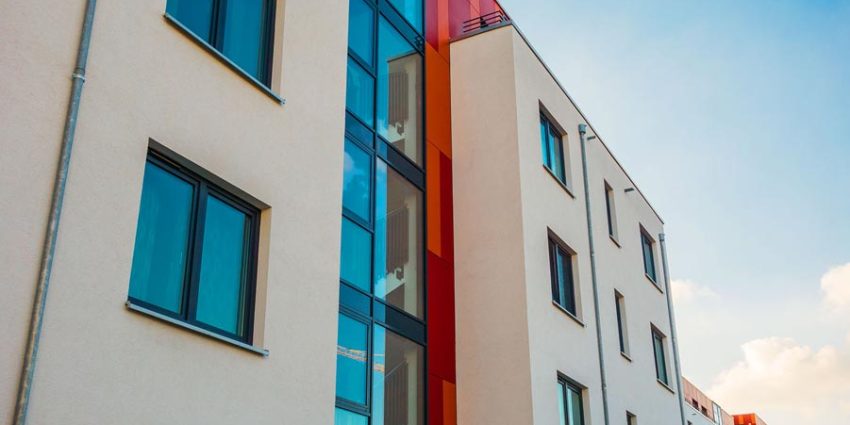As the vibrant hues of autumn begin to grace the landscape, it’s time to prepare your building for the impending winter chill. The brisk air, coupled with unpredictable weather, can wreak havoc on your structure if you don’t take the necessary precautions. A fresh coat of paint not only revitalizes the aesthetic appeal of your building but also provides essential protection against the elements.
Inspect for Damage—Catch It Before It Escalates
Before diving into painting, conduct a thorough inspection of your building’s exterior.
- Look for Cracks and Peeling Paint:
Identify any areas where paint is peeling or where cracks have formed. These imperfections can allow moisture to seep in, leading to more significant problems down the line.
- Check for Rot and Mold:
Pay special attention to wooden elements and areas that are prone to moisture. Addressing rot or mold now will prevent costly repairs later.
Choose the Right Paint—Quality Matters
Not all paint is created equal, especially when it comes to enduring the harsh winter months.
- Choose a paint specifically formulated for exterior use. Weather-resistant formulas can better withstand moisture, UV rays, and temperature fluctuations.
- A satin or semi-gloss finish can provide added protection against moisture and dirt, making it easier to clean.
Investing in quality paint pays off in longevity and performance.
Prep the Surface—The Key to a Lasting Finish
Preparation is everything! Without proper surface prep, even the best paint can fail.
- Clean the Surface Thoroughly – Use a pressure washer or a scrub brush to remove dirt, mildew, and old paint. A clean surface promotes better adhesion.
- Repair Damaged Areas – Fill cracks and holes with appropriate fillers or caulk. Smooth out the surface to ensure an even finish.
Taking the time to prep will yield a finish that lasts.
Choose Your Timing Wisely—Weather Awareness is Key
Painting in the autumn requires careful consideration of the weather.
- Watch the Temperature – Ideally, temperatures should be above 50°F (10°C) for optimal paint application. Too cold can cause the paint to dry improperly.
- Check for Rain Forecasts – Avoid painting when rain is expected. Wet conditions can ruin your efforts and lead to a botched job.
Being mindful of weather conditions ensures a smoother painting process.
Layer for Protection—Don’t Skimp on Coats
When it comes to painting, more isn’t always better, but layering can offer enhanced protection.
- Apply Primer if Necessary – In cases of bare wood or significant color changes, a primer can help improve adhesion and prevent bleed-through.
- Use Two Coats of Paint – A second coat not only adds depth of color but also creates a more robust barrier against moisture.
The extra effort can significantly extend the lifespan of your paint job.
Conclusion
With this autumn painting checklist in hand, you can protect your building from winter’s unforgiving grasp. As the leaves fall and the air turns crisp, take these steps to ensure your building is ready to face whatever winter brings!

